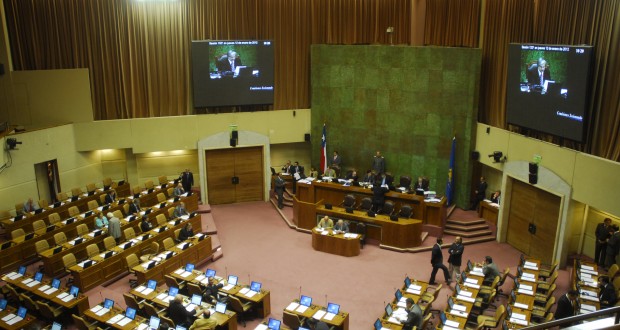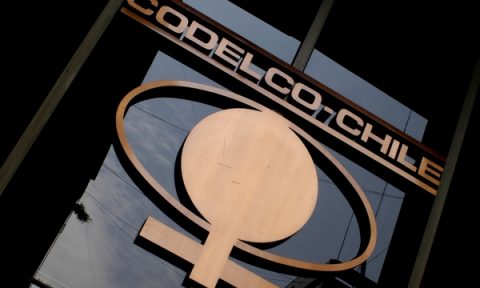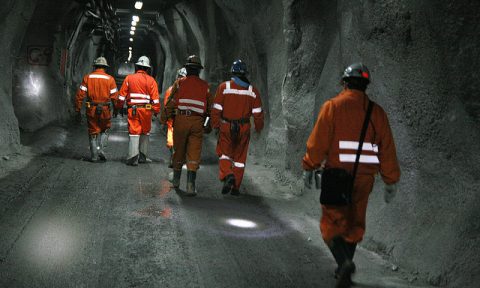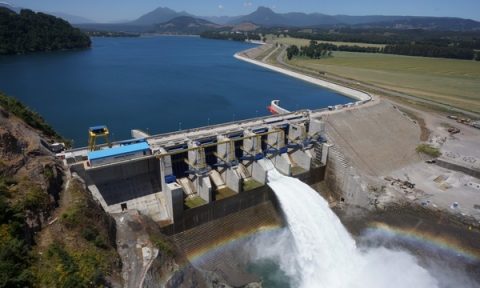Deputies reject Pascua Lama’s report and require revoke its authorization

On Tuesday, the Board of the Chamber of Deputies rejected the report of the Investigation Committee on the Pascua Lama project, because it did not include in its conclusions the application for revocation of the Environmental Qualification Resolution (RCA) that authorizes it.
In May 8th 2013, the Chamber of Deputies approved the request to initiate a Commission of Inquiry on this controversial project, which was formed in June setting a 60 days deadline to submit its conclusions. Since then a number of extensions and adjustments resulted in that on Tuesday the room resolved to reject the document.
This is because the document did not incorporate the final revocation of permits of the Canadian Barrick Gold, despite the damage that the initiative creates to the environment and to the population of the Valle del Huasco. This was stated by independent deputy, Roberto Poblete, who opened the debate pointing the profound impact of Pascua Lama.
“This project is a large scale one involves accessing to a mine under two ancient glaciers and then extract gold located there. This without counting the externalities that the extraction process entails, such as damage to the communities that inhabit the Valle del Huasco, and certainly the irreparable damage that occurs to the glaciers, and the valley itself. We simply believe that something cannot happen in Chile and less in a government that is committed to raising the standards of care for the environment, “said Poblete.
The congressman recalled repeated breaches the company has committed to the environmental, administrative, civil and mining Chilean law, and that despite the fines, the firm has chosen to continue operating, even acknowledging the sanctions of the Superintendent of Environment and cessation issued by courts.
The majority of Members present agreed with this mega mining project has highlighted the shortcomings of the current environmental institutions, and criticized the system for evaluating and approving initiatives, lack of citizen participation, the figure of compensation, among other topics. In that vein, the also independent deputy, Marcela Hernando, recalled that the laws were approved by the Parliament itself and it has no power to revoke an environmental qualification resolution.
“This project was developed with bases that this Chamber delivered through a law which established the powers of the Superintendent and the Environmental Courts. So now it cannot interfere in their names, or their failures. I also want to remember that this is a project under the Treaty of Mining Integration and Complementation between Chile and Argentina and it does not seem prudent that this branch of government stress the understanding protocol between countries, “said the parliamentarian.
To the discussion attended as a listener the same minister, Paul Badenier, who was directly challenged by the chairman of the Committee on Environment of the Chamber, the socialist Daniel Melo, who urged the authorities to clarify the role of government in final revocation. For his part, Secretary of State, stated that the current regulation is not the same as three years ago.
“The difference in other discussions, in other controversial projects, today the Pascua Lama project is paralyzed by the Superintendence of the Environment. Also in other discussions was present in relatively small and paltry fines that had environmental institutions, where the maximum penalty that could be applied were around of 500 UTM. Today we are facing a proposed penalties, fines by 16 thousand annual tax units, “said the minister.
After this report was rejected by 64 votes to 42, leaving under the Huasco Valley communities who were attentive to the development of this agreement. With this the research conducted since June 2013 is void and does not operate as a means of validating the continuity of the company in the area.
Source: Radio Universidad de Chile











